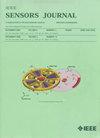Decoupling Design Model of Square Uniform-Field Coil System Using Improved PSO-ANN Algorithm
IF 4.3
2区 综合性期刊
Q1 ENGINEERING, ELECTRICAL & ELECTRONIC
引用次数: 0
Abstract
In this article, a decoupling coil design method is proposed to solve the coupling problem of square uniform-field coil design for magnetic field control systems in cell culture devices. First, the particle swarm optimization algorithm is improved by adaptive weights and penalty functions. Second, the artificial neural network is used to construct coil design models with magnetic shielding layers combined with an improved particle swarm optimization algorithm. The simulation result shows that the maximum error of the coil design model is less than 0.8%. Then, the design model was used to design the uniform-field coil system in the magnetic control system of the cell culture system. The simulation results show that the maximum normalized error of the coil system in the target region is 0.966%, which is 2.3 times and 2.4 times less than the standard square Helmholtz coil system (2.24%) and bi-planar coil system (2.32%) under same size. The experimental result of the magnetic field control system shows that the uniform-field coil system can produce求助全文
约1分钟内获得全文
求助全文
来源期刊

IEEE Sensors Journal
工程技术-工程:电子与电气
CiteScore
7.70
自引率
14.00%
发文量
2058
审稿时长
5.2 months
期刊介绍:
The fields of interest of the IEEE Sensors Journal are the theory, design , fabrication, manufacturing and applications of devices for sensing and transducing physical, chemical and biological phenomena, with emphasis on the electronics and physics aspect of sensors and integrated sensors-actuators. IEEE Sensors Journal deals with the following:
-Sensor Phenomenology, Modelling, and Evaluation
-Sensor Materials, Processing, and Fabrication
-Chemical and Gas Sensors
-Microfluidics and Biosensors
-Optical Sensors
-Physical Sensors: Temperature, Mechanical, Magnetic, and others
-Acoustic and Ultrasonic Sensors
-Sensor Packaging
-Sensor Networks
-Sensor Applications
-Sensor Systems: Signals, Processing, and Interfaces
-Actuators and Sensor Power Systems
-Sensor Signal Processing for high precision and stability (amplification, filtering, linearization, modulation/demodulation) and under harsh conditions (EMC, radiation, humidity, temperature); energy consumption/harvesting
-Sensor Data Processing (soft computing with sensor data, e.g., pattern recognition, machine learning, evolutionary computation; sensor data fusion, processing of wave e.g., electromagnetic and acoustic; and non-wave, e.g., chemical, gravity, particle, thermal, radiative and non-radiative sensor data, detection, estimation and classification based on sensor data)
-Sensors in Industrial Practice
 求助内容:
求助内容: 应助结果提醒方式:
应助结果提醒方式:


